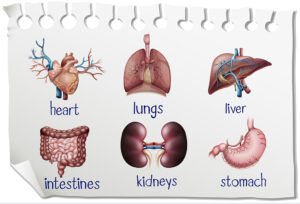Date: November 7, 2024
Why National Cancer Awareness Day Is Important For Life
National Cancer Awareness Day is observed annually on November 7th to raise public knowledge about cancer and its presence in lives. The day becomes a call to preventive health measures, early diagnosis, and increased availability of resource provision for people facing such challenges of cancer. But beyond awareness lies an equally important goal, which is to take measures to preserve vital organs that cancer commonly affects, such as the heart, liver, and kidneys.
For severe diseases such as cancer, the foremost lines of defense are always prevention and early detection. What these awareness days, like National Cancer Awareness Day, do to people is motivate them to gain knowledge about how it influences various organs and take active health measures. Many cancers of the liver, heart, and kidneys are often diagnosed at an advanced stage when treatment is even more challenging or sometimes demands an organ transplant.
Organ health and transplant needs are just some of the influences that cancer has on the human body. Many consider National Cancer Awareness Day a chance to alert people of the importance of attending routine check-ups. If caught in their early stages, most cancers can be treated, but if left until they have spread to other parts of the body, much damage will likely have been done to organs like the liver and kidneys. In very exceptional cases, even the heart is affected. How cancer affects the organs is hugely different. For instance, liver cancer progresses fast, such that when the disease strikes, it reaches a state where the liver does not function normally and typically needs a liver transplant. Unfortunately, the majority of impoverished people cannot afford the costs of these expensive treatments.

Similarly, kidney health is not an exception and is at risk of causing complications with cancers. Renal cancer can severely impair the functions of the kidney, and sometimes, even both kidneys have to be removed. In such cases, transplantation of a kidney is the only treatment possible for survival. As kidney transplantation is costly, financial aid for kidney transplants is an added facility that helps those affected by the disease. Not only are such transplant organisations saving lives, but they are also raising the urgent need for early cancer screenings.
Heart transplants are generally not associated with cancer. Most treatments for cancer, including chemotherapy and radiation, however, are known to be toxic to the heart, leading to cardiac-related conditions which require cardiac interventions. This is the case of heart failure due to cancer treatments. Preserving the heart’s health becomes the only factor guaranteeing survival. Financial support for heart transplants is available, helping reduce the load and touch people who need emergency care. It gives hope to patients with no other options through targeted fundraising and support from organisations that transplant tissues and organs.
Cancer affects not only the person diagnosed but also the families and communities around them. Organ and tissue transplantations form an essential step in health care in India, although the scope remains to emphasise the possibility of living donors. Living donors donate pieces of their organs, one of which includes a share of the liver or an organ known as a kidney, to rescue patients desperately in need of them for survival. For example, many living donors in Mumbai have saved thousands of patients who are urgently in need of organ transplants but have fewer options. Awareness of becoming an organ donor in India is essential for increasing the number of available donors and ensuring that people living with cancer get lifesaving organ donations.
Transplant India brings people together by encouraging them to donate organs and be donors to someone. As an Organ donation NGO in Mumbai, we raise awareness of organ transplantation regarding what is being donated. The number increases daily, and on National Cancer Awareness Day events, many people can be inspired to become organ donors in India.

Transplanting an organ is not only a medical issue, but also it is monetary. Low-income families are heavily burdened with an unbearable bill if their family member requires an organ transplant. For instance, the price of a liver transplant in India cannot be afforded by those people belonging to the lowest classes in society. To bridge this gap, we have initiated crowdfunding programmes and collaborations with charitable trusts for liver transplants in Mumbai, which provides financial assistance for liver transplants due to cancer and organ failure. These resources make it possible for those who have no means to have a chance at a lifesaving transplant, shifting from awareness to tangible support.
It also provides opportunities for crowdfunding organ transplants, bringing donors and supporters together with the recipient. This crowdsourced model ensures that the patient can raise critical funds as quickly as possible and thus get help that might mean the difference between life and death. Organ transplant crowdfunding has emerged as an essential resource for supporting individuals who need financial assistance.
This awareness day is about sharing information and ensuring the communities make meaning of it. Getting people to care about the risks, especially the likelihood of getting cancer, provokes action that may help avert some organ failures. It reminds those already affected what efforts organisations like Transplant India can make to support patients undergoing liver and kidney transplants and those who hope to get a heart transplant, and it is offering funding, education, and care to those in need today.
Let us celebrate the call on this day to recognise early detection and healthy action. Let us also continue to promote screening programmes and health awareness initiatives by supporting them as a form of preventive measure against cancer-caused organ failure. Transplant India becomes a ray of hope for needy individuals who will acquire the necessary finances and logistics to survive through lifesaving transplants. Thus, it can ensure the lives of many individuals through increased awareness and collective actions maintained all over India, hence taking care of its organs.